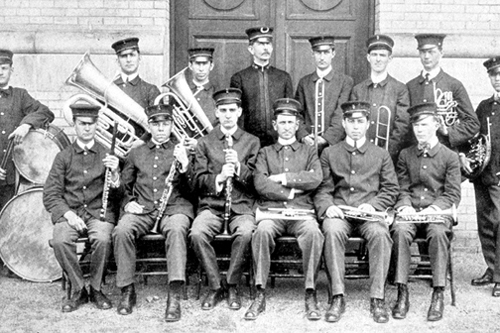Tennessee celebrates Arbor Day on the first Friday in March, but originally it was observed in the fall. The holiday, which began with a mission to plant trees across the nation, traces its origin to the 1870s. Each state soon chose a date for its observance that corresponded with the ideal tree-planting time for that region.
The October 31, 1905 edition of the Johnson City Staff newspaper featured an article with three headings: “Will Celebrate Arbor Day – November 14 Will Be Celebrated at Home – Revolutionary Heroes to Be Remembered and Every State in the Union to be Honored.”
The text began with the words, “Arbor Day, created by the several states and directly for the purpose of planting trees to beautify the earth’s surface, is at once a beautification that in the future will have a tendency to call forth favorable comment on the perfecters of this excellent work. In keeping with this thought and at the same time to additionally encompass the well-being of our surroundings, our excellent Governor (John I. Cox) has set aside Saturday, November 14 as Arbor Day at this (Soldiers Home) Branch. Sergeant Major Charles Troutnun directed the festivities. On that occasion, about 500 trees will be planted on the reservation, which will grow apace until the future will present a wilderness forest whose leaves will shade and comfort those who will take the place of the present membership in the years to come. The program as mapped out will be representative of every state within the united galaxy.”
One group of trees was planted on the south front of the President Andrew Johnson Barrack to commemorate the two regiments of brave East Tennesseans who met at Sycamore Shoals in Elizabethton and honored themselves and the Continental Array in the historic battle of Kings Mountain in the Revolutionary War.
The Daughters of the American Revolution of Bristol, Tennessee, in keeping with the patriotic spirit of the occasion, dedicated the Revolutionary group with patriotic ceremonies. Johnson City, represented by its foremost citizens, planted a section of trees interspersed with speeches appropriate for the occasion. Another assemblage of persons known as the Watauga Settlement Group made their apt contributions to the soil to fitly commemorate the heroic deeds accomplished by those fighting in the revolution.
An individual was chosen to represent every state of the union. For every star that emblazoned Old Glory, the selectors paid homage to the cause by planting a tree. Each state was allowed to plant from six to eight trees; all but one was planted prior to the Arbor Day ceremonies. For the remaining lone tree, it was the wish of the governor that members of the Soldiers Home branch club and state appointees form an organization and select from their numbers a spokesman who, upon planting the remaining tree, would enlarge upon the honor in a carefully worded speech that befit the occasion.
It was the first time in the history of the National Home that such an honor was conferred on its members, behooving them to take an interest in the furtherance of the project that would demonstrate in the years to come that they had been moved by what the survivors of the Civil War, Spanish American War and veterans of the Philippians did for the beautification of those who were to follow.

During the day, the Soldiers Home band provided a wide range of music that spanned the gamut from “Reveille” to “Taps.” The occasion was described as being “fruitful of all that is patriotic and joyful.” The fruits of that tree-planting labor are still being enjoyed over a hundred years later.
